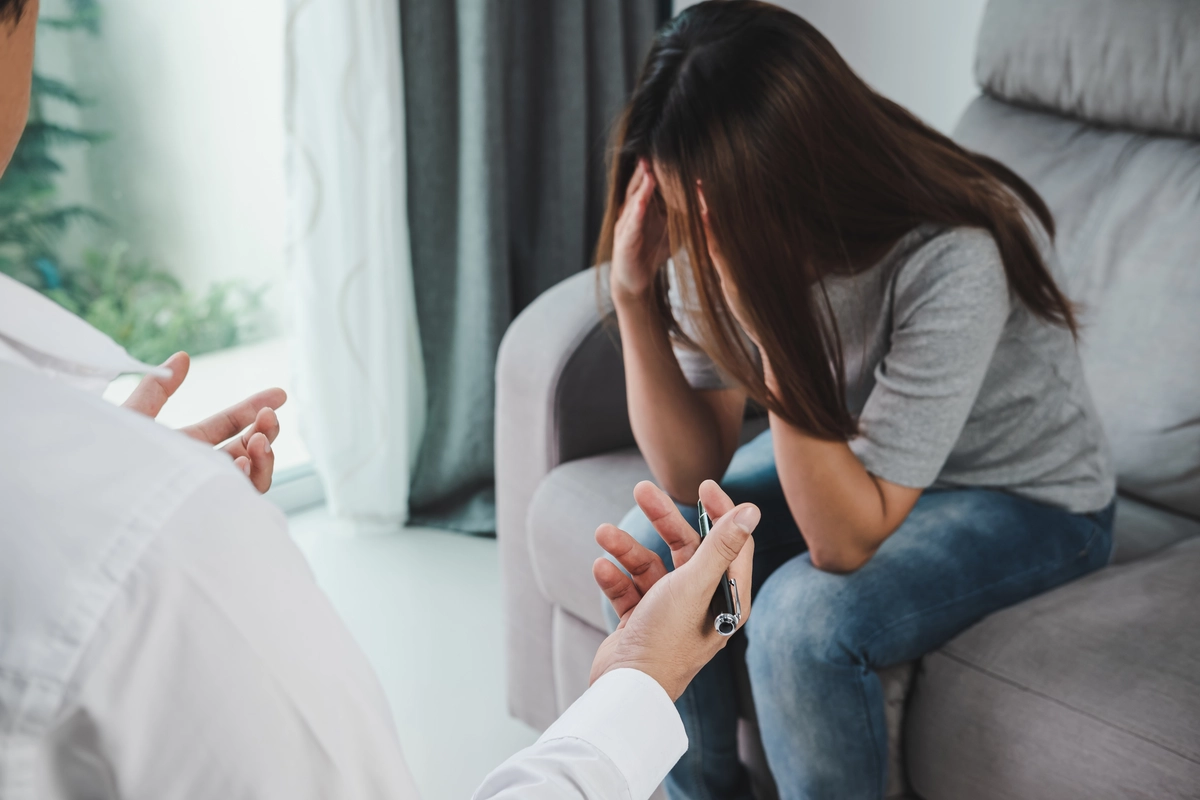24/7 Helpline:
(866) 899-221924/7 Helpline:
(866) 899-2219
Learn more about Bipolar Disorder Treatment centers in Oceanside

Other Insurance Options

Sutter

Absolute Total Care

Kaiser Permanente

Lucent

GEHA

Humana

Optum

Excellus

Horizon Healthcare Service

MVP Healthcare

MHNNet Behavioral Health

Multiplan

BHS | Behavioral Health Systems

Health Net

Self-pay options

Aetna

Health Choice

WellPoint

Covered California

ComPsych

Turning Point Crisis Center
Turning Point Crisis Center is a short-term acute residential treatment facility located in Oceansid...

SOAP MAT
SOAP MAT is a private rehab located in Oceanside, California. SOAP MAT specializes in the treatment ...

McAlister Institute – Adolescent Residential
McAlister Institute - Adolescent Residential offers a residential detox treatment for teens. Additio...

Mindful Rejuvenation
Mindful Rejuvenation is a private rehab center located in Oceanside, California. Mindful Rejuvenatio...

West Coast Recovery Centers
West Coast Recovery Centers is a private rehab located in Oceanside, California. West Coast Recovery...

Pacific Palms Recovery
Pacific Palms Recovery - Mesa Drive offers outpatient and intensive outpatient treatment for individ...

MHS – Family Recovery Center – FRC
MHS Family Recover Center, located in Oceanside, California, is a women’s addiction treatment center...

MHS – North Coastal Mental Health Center
Located in Oceanside, California, MHS – North Coastal Mental Health Center — now called TURN Behavio...

South Nassau Communities Hospital – Inpatient
South Nassau Communities Hospital – Inpatient is a private rehab located in Oceanside, New York. Sou...








North County Alano Club
North County Alano Club is a private rehab located in Oceanside, CA. North County Alano Club special...

Tender Loving Mercy
Tender Loving Mercy is a non-profit rehab located in Oceanside, California. Tender Loving Mercy spec...

Mental Health Systems – Pegasus West
Mental Health Systems – Pegasus West is a private rehab located in Oceanside, California. Mental Hea...

Rebuild
Rebuild is a private rehab located in Oceanside, California. Rebuild specializes in the treatment of...

North Coastal Regional Recovery Center – NCRRC
North Coastal Regional Recovery Center (NCRRC) provides professional services that heal the lives of...

Oceanside Counseling Center
Oceanside Counseling Center is a private rehab located in Oceanside, New York. Oceanside Counseling ...




